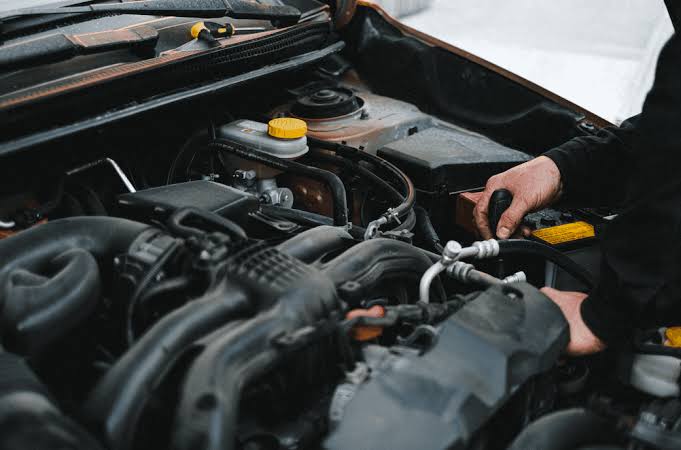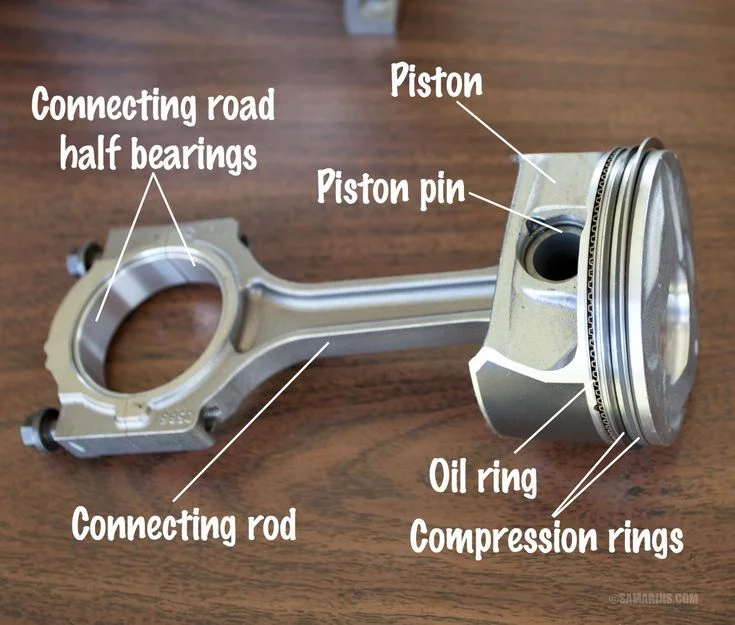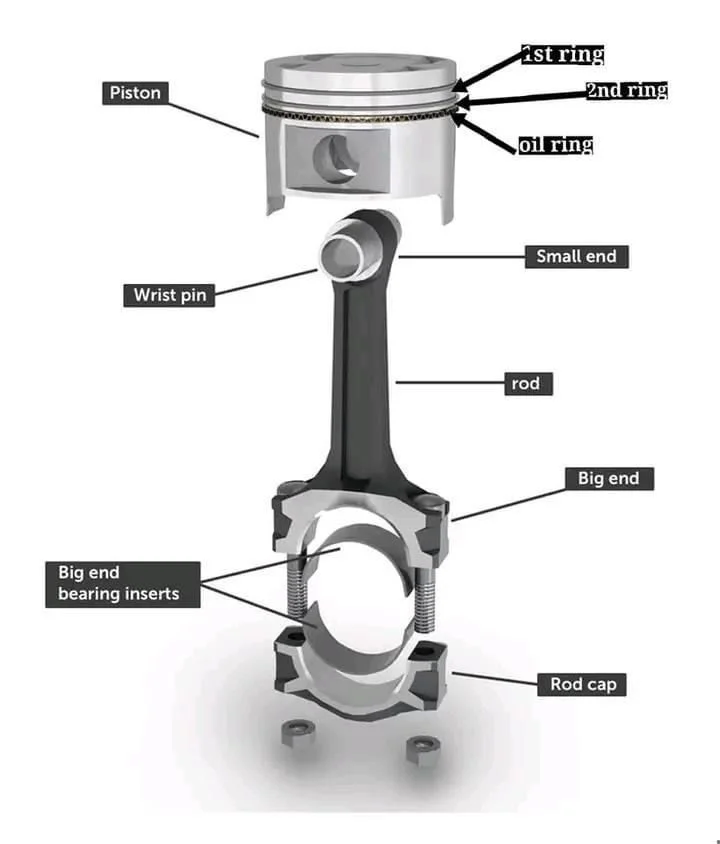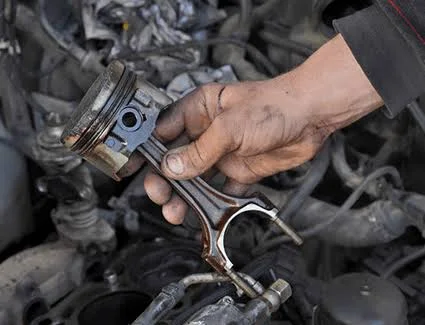Here's a sobering statistic: mechanics estimate that over 65% of catastrophic engine failures could have been prevented if drivers had acted on early warning signs.
That metallic tapping sound you're hearing right now? It might be your engine's final plea for help.
"I thought it would get me home," says practically every driver who's ever stood on a roadside waiting for a tow truck. Sound familiar? That seemingly harmless knocking noise from under your hood isn't your engine clearing its throat, it's screaming for attention. And when you ignore it, you're gambling with thousands of dollars.
The $5,000 Wake Up Call
The noise starts innocently enough. A subtle tapping. Maybe it comes and goes. "My car's always been a little noisy," you tell yourself. Then one morning, it sounds like someone's trapped a woodpecker inside your engine bay.
That woodpecker sound? It's called rod knock. And it's about to cost you anywhere from $2,000 to $10,000 for a complete engine replacement.
The cruel irony is that fixing the actual problem, worn rod bearings costs between $800 and $3,400. That's the difference between a manageable repair bill and financial devastation.
What Your Engine Is Actually Telling You
Rod bearings are thin metal shells that sit between your connecting rods and crankshaft. They're lubricated by engine oil and allow these massive metal components to move smoothly thousands of times per minute. When they wear out, metal starts grinding against metal.
The sound progression tells a story:
- Stage 1: Light tapping at idle that disappears when you rev the engine
- Stage 2: Knocking that gets louder with acceleration
- Stage 3: Constant metallic hammering that makes passengers uncomfortable
- Stage 4: Complete engine seizure
"I knew something was wrong, but I needed to get to work," is the most expensive sentence in automotive history.
The Domino Effect of Denial
When rod bearings fail completely, they don't go quietly. The connecting rod can actually punch through your engine block, a catastrophic failure that mechanics call "throwing a rod." At this point, your engine becomes a very expensive paperweight.
But the damage doesn't stop there. Oil pressure drops dramatically, starving other engine components of lubrication. The oil becomes contaminated with metal shavings, turning your engine's lifeblood into liquid sandpaper. Your transmission can even suffer damage from the sudden loss of smooth power delivery.
Recent forum discussions reveal repair costs that make your eyes water: $13,000 for a WRX rod knock repair, $20,000+ for complete engine rebuilds, and $30,000 for high performance engine failures.
The Five Minutes That Could Save You $15,000
Catching rod bearing failure early requires paying attention to your car's cries for help:
- The Woodpecker Test Does your engine sound like a persistent woodpecker at idle? Rod knock typically starts as a rhythmic tapping that increases with engine speed. Unlike valve noise, which is higher-pitched and comes from the top of the engine, rod knock originates deep in the engine block.
- Oil Pressure Warning Your oil pressure gauge dropping or warning lights illuminating indicate that worn bearings are creating excessive clearance, reducing the oil system's ability to maintain pressure.
- Metallic Oil Check your oil for a silvery sheen or visible metal particles. This contamination indicates bearing material is wearing away and circulating through your engine.
- Power Loss Worn bearings disrupt the precise timing and force transfer that makes internal combustion possible. You'll notice reduced acceleration and general sluggishness.
- Engine Misfires As bearings wear, they affect the smooth operation of pistons and connecting rods, leading to irregular combustion and misfiring.
The Economics of Engine Survival
Rod bearings typically last 60,000 to 80,000 miles under normal conditions. However, several factors can dramatically shorten their lifespan:
- Skipped oil changes: Old oil loses its lubricating properties and becomes contaminated
- Low oil levels: Even briefly running low on oil can cause permanent bearing damage
- High-performance driving: Track days and aggressive driving accelerate bearing wear
- Poor quality oil: Using the wrong viscosity or cheap oil compounds bearing stress
"I change my oil when I remember," might sound casual, but it's actually a recipe for a five-figure repair bill.
Prevention Costs Pennies, Replacement Costs Thousands
The mathematics of engine maintenance are brutally simple. Regular oil changes cost about $50 - 100 every 5,000 to 7,500 miles. That's roughly $100 - 200 per year for most drivers.
Compare that to engine replacement costs:
- Used engine: $3,000 - 5,500
- Rebuilt engine: $2,500 - 4,000
- New engine: $4,000 - 7,000
- High performance engines: $10,000+
The return on investment for preventive maintenance is astronomical, roughly 5,000% or more.
When Warning Signs Become Deadline Alarms
If you're experiencing any rod knock symptoms, you have a narrow window to act. Continue driving, and you're essentially playing Russian roulette with your engine. The bearing material that protects your crankshaft is finite, once it's gone, catastrophic failure follows quickly.
Immediate actions if you suspect rod knock:
- Stop driving immediately – every mile could be your engine's last
- Check oil level and condition – low or contaminated oil accelerates failure
- Schedule diagnostic testing – confirm the problem before it becomes catastrophic
- Get multiple repair quotes – rod bearing replacement varies significantly in cost
That strange knocking noise isn't your engine's quirky personality, it's a distress signal. Ignoring it transforms a manageable $800-3,400 repair into a potentially $20,000+ disaster.
"I should have listened to my car," becomes the regretful refrain of drivers who learned this lesson the expensive way. Your engine is talking to you right now. The question is: are you listening?
The next time you hear that metallic tapping, remember this article. Your wallet will thank you.




Comments (0)
Please login to join the discussion
Be the first to comment on this article!
Share your thoughts and start the discussion